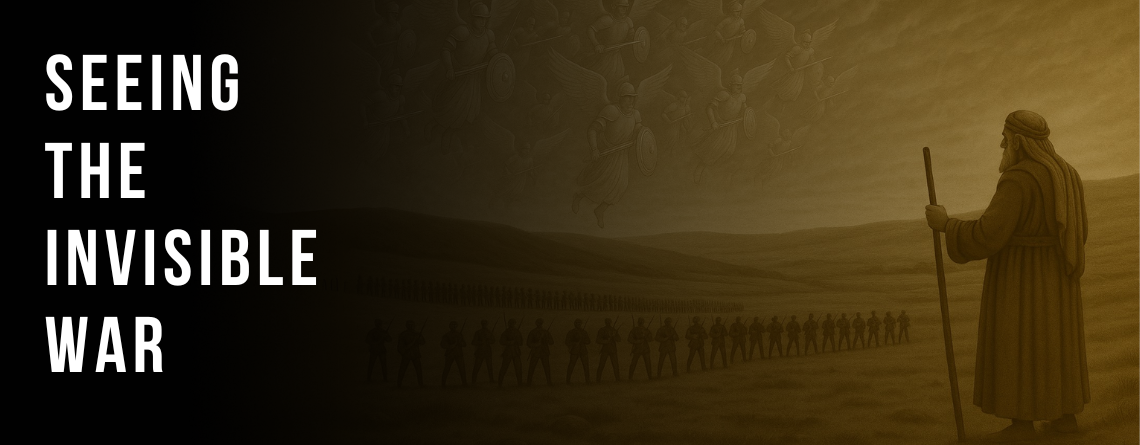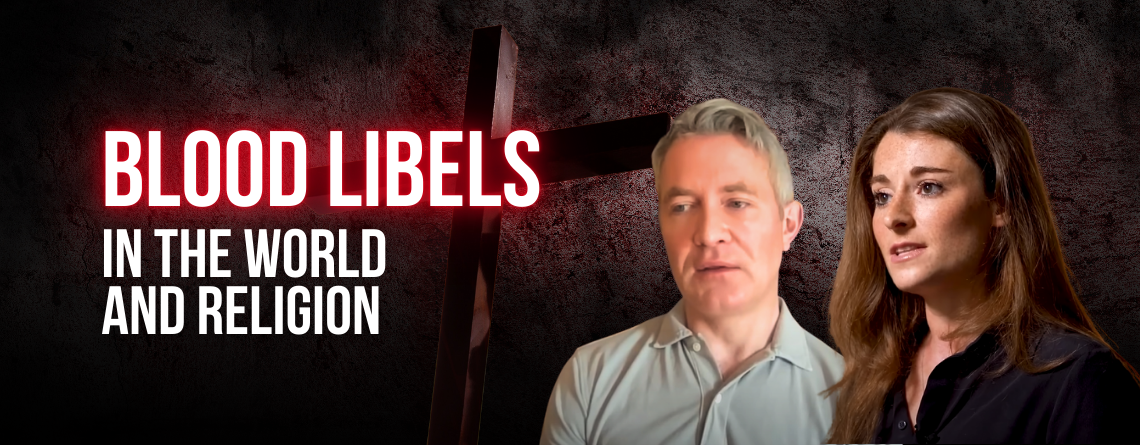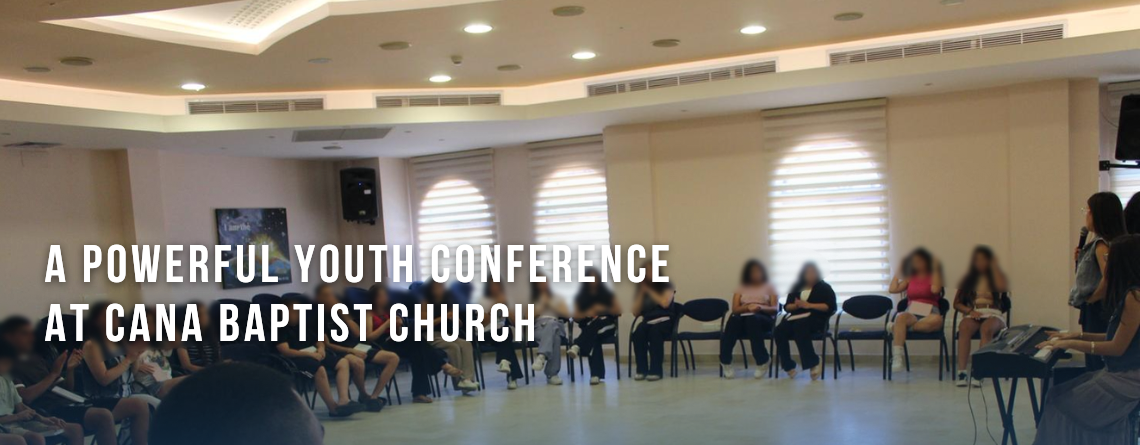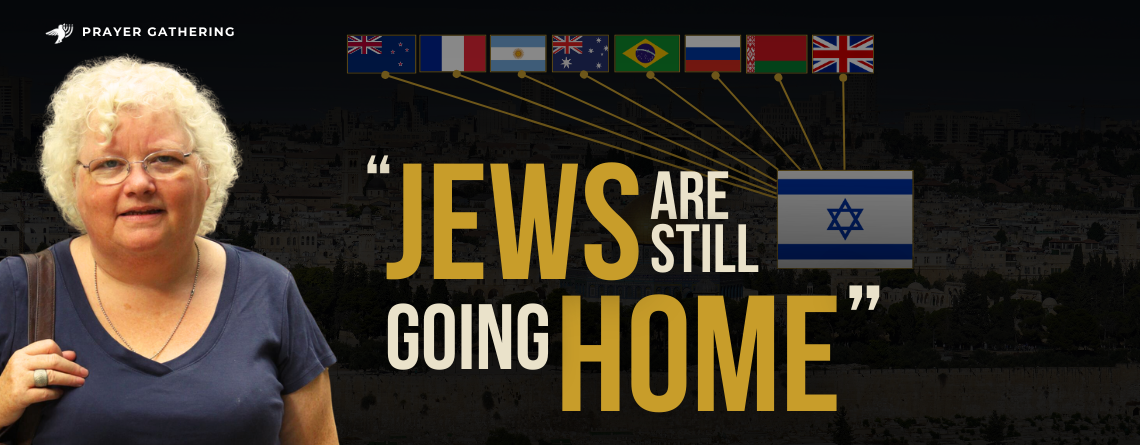Spiritual warfare is not a fringe topic, it is at the very heart of the biblical story. While the Apostle Paul articulates the “invisible battle” most clearly in Ephesians 6, the entire narrative of Scripture is shaped by a cosmic war between God’s purposes and the powers that oppose them. Yet the Church today is often only trained to see this war on the personal level, the battle for one’s thoughts, temptations, and habits. This is the micro aspect of warfare, and it is vital. But it is not the full picture.
What is often neglected is the macro war, the conflict that unfolds over nations, covenants, lands, and the unfolding plan of redemption. Nowhere is this more visible today than in the ongoing, seemingly unresolvable conflict surrounding the nation of Israel. And nowhere is it more clearly portrayed in Scripture than in 2 Kings 6.
This chapter doesn’t just offer a glimpse into God’s miraculous power. It is a field report from the spiritual frontlines. And it demands that we, too, learn to see rightly.
When Armies Surround and Prophets See
The story opens with an act of miraculous provision, an iron axe-head that floats at the word of Elisha. It’s almost humorous in contrast to what follows. Because immediately after this quiet miracle, the narrative escalates dramatically. The king of Syria is enraged that his military strategies are consistently being anticipated by Israel. His servants inform him that it is Elisha, the prophet, who has been hearing from God what the king says even in his bedroom (v. 12). So he does what kings often do when confronted with a spiritual threat: he sends a physical army to fix a spiritual problem.
“Therefore he sent horses and chariots and a great army there, and they came by night and surrounded the city.” (2 Kings 6:14)
The city is encircled. From a military standpoint, it’s an overwhelming force. But the text immediately slows down and shifts to a domestic scene, Elisha’s servant awakening early. This is important. The servant rises before the dawn yet Elisha is already awake. He is not caught off guard. He is not looking out the window in horror. He is not frantically praying for a last-minute miracle. Elisha is already aware.
This is our first lesson in spiritual warfare: the man of God sees before others do. His watchfulness is not merely practical, it is prophetic. While the enemy moves under cover of night, Elisha remains spiritually alert. He is not shaken, because his sight is not limited to what is visible.
The servant, by contrast, sees only what is natural:
“Alas, my master! What shall we do?” (v. 15)
His language is familiar. It echoes the tone of many believers when they read news headlines about Israel, hear of threats from Iran, or see rising antisemitism across Europe. “What shall we do?” is the cry of the untrained, the unseeing, the one who walks by sight rather than by faith.
Elisha’s response is not simply comforting, it is profoundly theological:
“Do not fear, for those who are with us are more than those who are with them.” (v. 16)
This statement, in isolation, is almost reckless. It flies in the face of everything visible. But it reveals the prophet’s confidence in unseen realities. He is not making a hopeful guess. He is stating a fact based on supernatural insight.
But Elisha doesn’t stop there. He doesn’t rebuke the servant for his blindness; he intercedes for his vision.
“LORD, I pray, open his eyes that he may see.”
“Then the LORD opened the eyes of the young man, and he saw. And behold, the mountain was full of horses and chariots of fire all around Elisha.” (v. 17)
This is the hinge of the entire story, and of all spiritual warfare: seeing what is actually there. The servant’s panic is rooted in partial perception. His fear is not irrational, it’s simply incomplete. And the same is true today. The reason many Christians shrink from intercession for Israel is because they see the threats, the geopolitics, the protests but they do not see the chariots. They do not perceive the angelic host that surrounds God’s purposes. They do not see the jealous, covenant-keeping God who guards His word to perform it (Jer. 1:12).
The Strategies of Heaven
It is tempting to end the story at the moment of sight as if seeing is enough. But what follows is even more astonishing.
“So when the Syrians came down to him, Elisha prayed to the LORD, and said, ‘Strike this people, I pray, with blindness.’ And He struck them with blindness according to the word of Elisha.” (v. 18)
Note the structure here: first the servant’s eyes are opened, then the enemies’ eyes are closed. This is divine symmetry. The people of God are meant to have vision; the enemies of God are confounded but Elisha doesn’t destroy them. He leads them gently into the city of Samaria, right into the hands of Israel’s army and then does something utterly unexpected. He feeds them and sends them home. And the text tells us:
“So the bands of Syrian raiders came no more into the land of Israel.” (v. 23)
This is not just a story of miraculous deliverance. It is a study in heavenly strategy. Elisha demonstrates that spiritual authority does not always equate to destruction. Sometimes, heaven’s victory comes not through violence, but through clarity, kindness, and divine reversal.
Israel’s War, and the Church’s Sight
We are again living in a moment where Israel is surrounded. Not just by armies, but by ideological strongholds, demonic hatred, and global deception. The enemy is ancient and he has hated the covenant people from the moment God called Abraham. And just like in 2 Kings 6, he deploys earthly weapons to fight a spiritual war.
And the question for the Church is not, Are we on Israel’s side? It’s too narrow. The real question is, Do we see what God sees?
Because to see rightly is to intercede rightly. When we see that God’s purposes for Israel are not past but present, not replaced but unfolding, we begin to pray with covenantal urgency. We pray not merely for peace but for revelation, not merely for protection but for fulfilment, not merely against rockets but against principalities. When the servant’s eyes are opened, his panic dissolves. When the Church’s eyes are opened, intercession becomes bold. Worship becomes prophetic. Theology becomes rooted. And fear is replaced by authority.
Air Support on the Frontlines
This week, as we gathered to pray, we were honoured to welcome Asaf Pelled, an evangelist pioneering outreach among the ultra-Orthodox Jewish community in the Netherlands. As Asaf shared his heart, he paused, visibly moved, and thanked us for “bringing air-support” to his work. He described himself as the infantry, on the ground, going door to door. Yet he said that without our prayers, without the strategic, high-altitude prayers lifting up his every step, his efforts would be left vulnerable.
In his metaphor, our intercession is like reconnaissance flights overhead, spotting the enemy’s positions of fear, deception, and spiritual strongholds. Our worship is like an airdrop of encouragement and revelation, fuelling evangelistic teams with fresh boldness. When we pray for breakthrough, it’s like launching precision strikes against principalities not seen in this world (2 Kings 6:18) and not forgetting we also pray for our enemies that seek to blind hearts. And when we persist in worship and covenant-centred pleading, it’s like maintaining air superiority, so that no huddle of resistance can gather momentum. But air forces do more than attack: they offer medevac for the wounded, bring in supplies, and carry urgent messages. Likewise, our prayers carry spiritual medicine, healing wounds of doubt and fear. They supply frontline workers with supernatural endurance. And through prophetic carries, we can deliver fresh intelligence from heaven and see what God is already doing behind enemy lines.
Asaf’s gratitude reminded us that the global battle for Israel and the nations is won not only on the ground, but in the skies of prayer. When the Church rises to assume its role as air-support, our infantry partners on the ground; whether missionaries, evangelists, or frontline intercessors can advance with greater strength, clarity, and protection. Together, we become a unified army: ground troops and air wings, moving in perfect coordination under the command of the Lord of Hosts.
Open Our Eyes, Lord
2 Kings 6 is not just an ancient story, it is a living parable. It invites us to wake early, like the servant, and to seek the Lord, like the prophet. It calls us to abandon fear-based prayers and begin asking for sight. Not to change the world first but to see it rightly. Because only when we see clearly can we speak clearly, only when we perceive the battle can we participate in it and only when we recognise the heavenly host will we stop retreating and begin standing.
“Those who are with us are more than those who are with them.”







